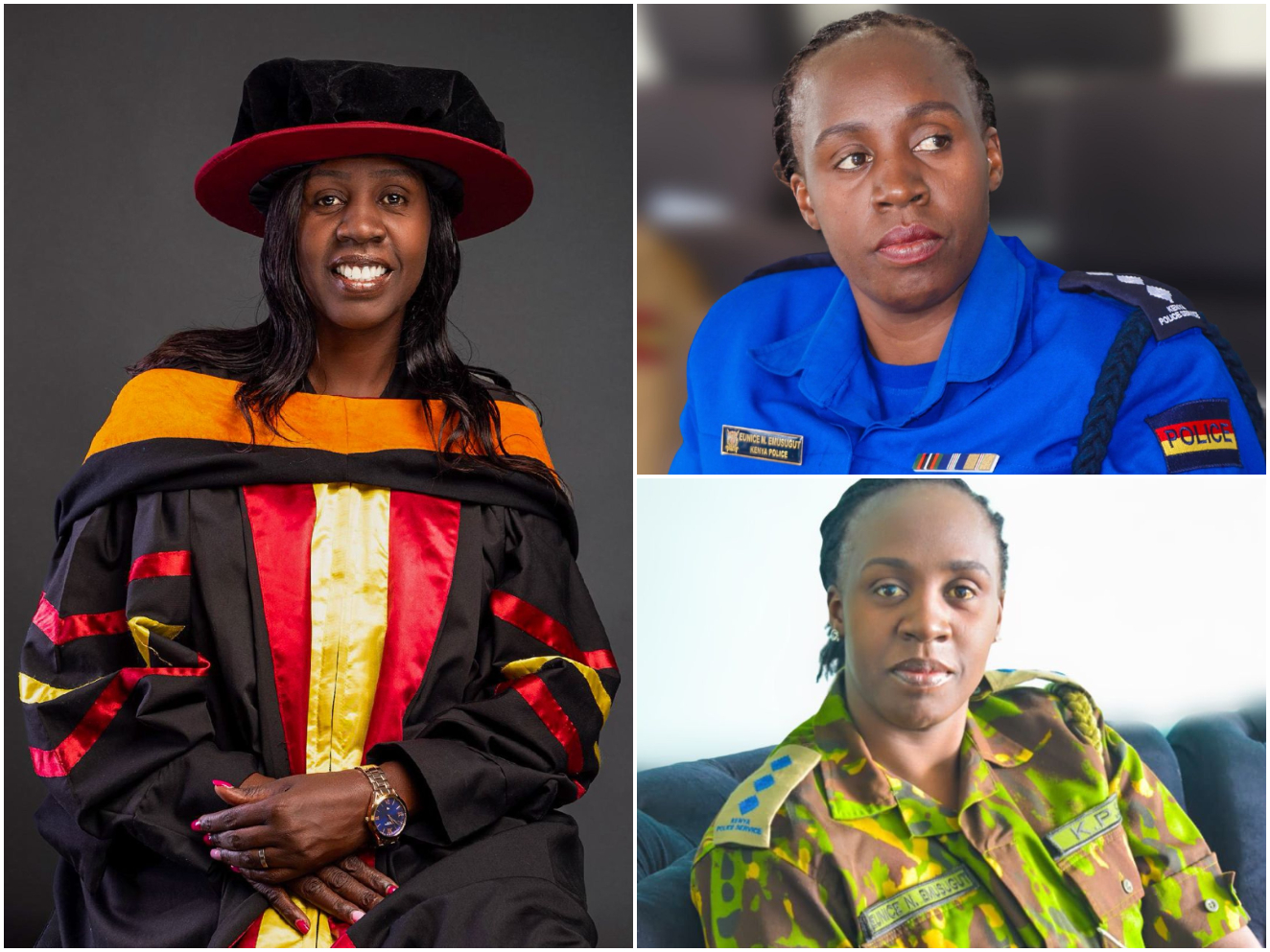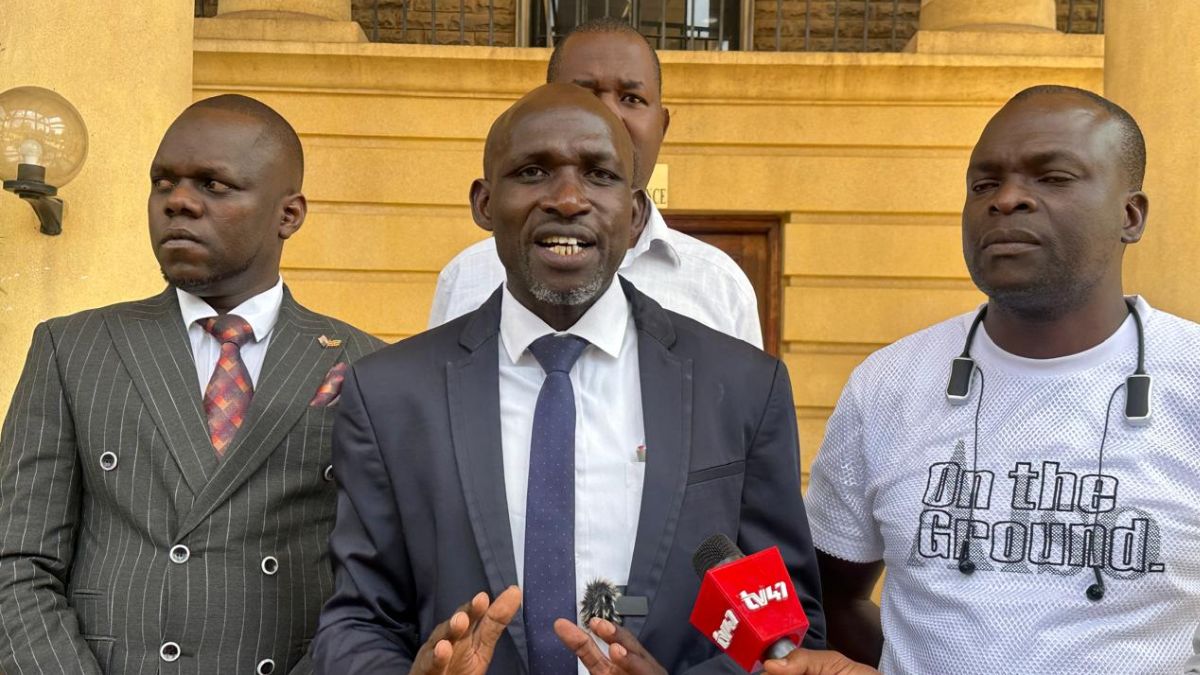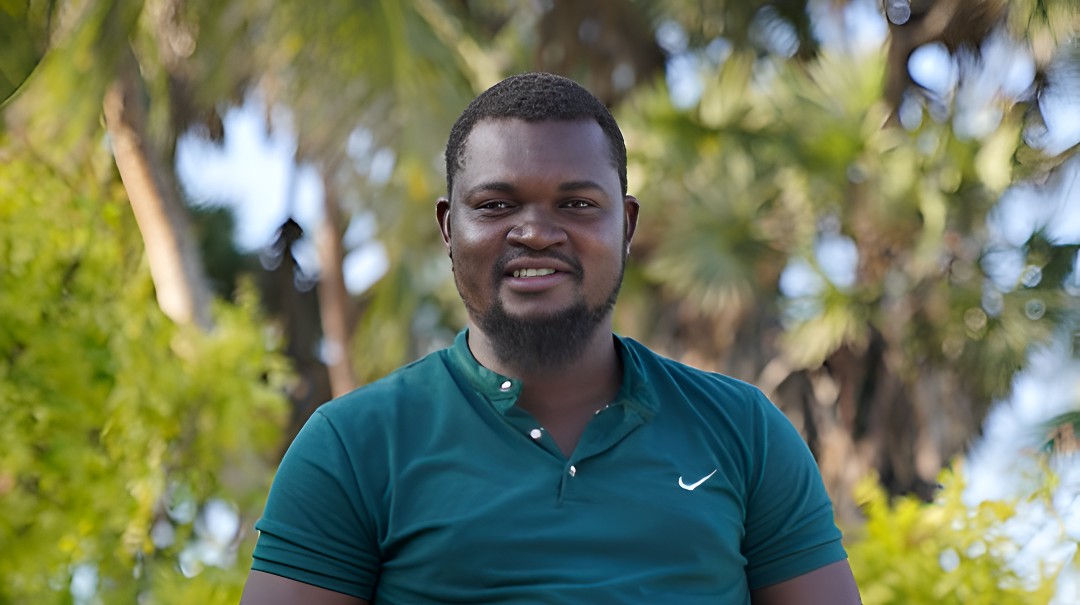Today, the National Police Service (NPS) is celebrating one of their own, Chief Inspector Dr Eunice Namonywe Emusugut.
Dr Emusugut, NPS describes her, is a trailblazer whose academic journey and service record continue to inspire her colleagues.
Since joining the Service in 2003, Dr Emusugut has established herself not only as a good law and order officer, but also a distinguished counselling psycologist. She boasts of over a decade of experience addressing complex psycosocial needs within the police service.
Dr Emusugut is currently domiciled at the Police Headquarters under the Directorate of Chaplaincy, Counselling and Psychosocial Support.
According to the NPS, her past assignments include key roles at the Directorate of Personnel’s AIDS Control Unit, Karen Police Station, and the former North Eastern Province’s Crime Office.
“These roles gave her firsthand experience of the psychosocial challenges faced by officers and the communities they serve—experiences that would later shape her academic pursuits and professional focus,” the NPS says.
Education
Dr Emusugut holds a Bachelor of Arts in Counselling Psychology from Africa International University, a Master’s in the same field from Daystar University, and an Advanced Diploma in Mental Health Practice from Amref International University.
She completed her academic journey with a Doctorate (PhD) in Counselling Psychology from the Catholic University of Eastern Africa. Beyond her police service, she is also a part-time lecturer, mentoring future mental health professionals.
Among Dr Emusugut’s achievements include; being a member of the sub-committee that formulated the Counselling and Chaplaincy Policy for the National Police Service and contributed to developing a trauma counselling training manual for police officers. She is also a certified counsellor and an accredited Associate Supervisor with the Kenya Counselling and Psychological Association.
“Her story is not just one of personal success—it is a blueprint for integrating academic knowledge into policing to improve service delivery, mental wellness, and institutional growth,” the NPS posits. “Officers like Dr. Eunice exemplify how academic empowerment within the NPS enhances professionalism, nurtures resilience, and fosters a culture of ethical and compassionate policing.”
Police officers have come under sharp criticism recently, with Kenyans taking issues with they way they have handled anti-government protests. Human rights groups have also accused police officers of using excessive force on youth protestors, and overseeing wanton killing in the streets.
Security pundits have suggested that perhaps it is time to review the police curriculum, and put into consideration education levels, something that was overlooked since time immemorial when recruiting police officers.
And this is something that the NPS concurs with, asserting that higher education remains central to transforming officers into multidimensional professionals, better equipped to serve, protect, and engage with their communities.
“Dr. Eunice is living proof that the pursuit of knowledge is not just beneficial but essential in building a better police service. The NPS celebrates and supports the pursuit of knowledge across all ranks, for an informed officer is an empowered officer.”











